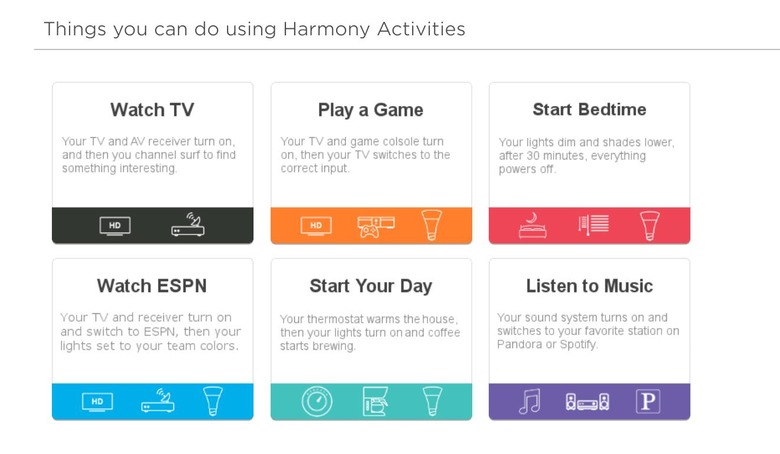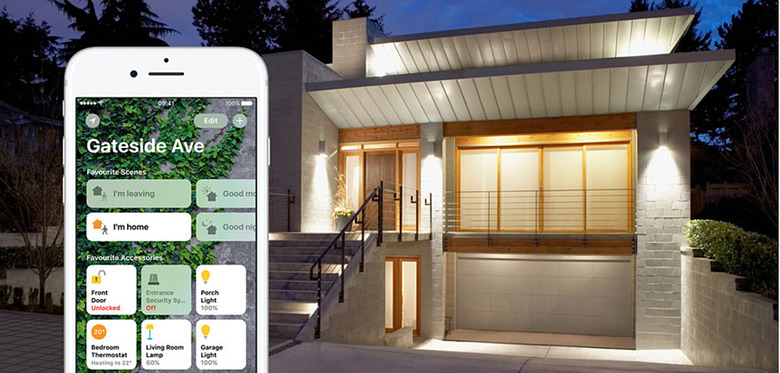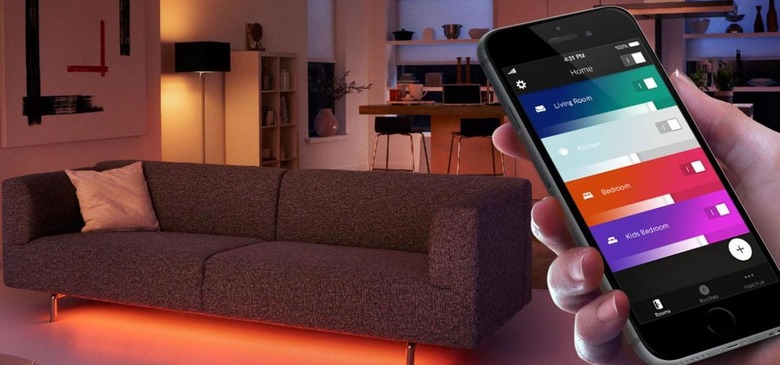Smart Home Benefits And Risks: Look Before You Connect
There's no escaping the future. Sooner or later, most of our home appliances will be connected, to each other, to our phones, and to the Internet at large. It has never been so easy to get started. A smart bulb here, a smart plug there, a smart speaker in the living room. But just because something is easy or inevitable doesn't mean you should go rushing in. Considering what's at stake, it's even more necessary for us to take stock of the situation and get a better sense of what you gain and what you lose when you make your home smart, sometimes smarter than you even.(Image credit: Ubuntu Insights)
Automation
Automation is really the biggest benefit to all these connected devices and appliances. Sure, it might be fancy to control your lights from afar, using your voice or your finger, but unless you're able to automate those actions, you simply moved the light switch away from the wall and closer to you. You might as well have a remote control for the light and stop at that.
Automation allows you to do a number of things, like set when those lights turn on or off or control multiple devices at the same time. Most of these things still have to be manually programmed, however, though only once or twice at most. For better or worse, they're still not smart enough to discern our needs and wants based on our habits. At least not yet.

Knowledge
Being connected to the Internet, smart home products also bring us knowledge in the form of notifications and status reports. Smart home security systems do even better by letting us know what's happening right when and where it happens, sometimes even allowing the user to respond immediately. They can alert us to danger or to a depleted supply of eggs.
That knowledge doesn't come without a price, literally. Some of the smaller devices have no extra cost for notifying you of events, but most security cameras have storage and service fees attached to them. There are also limits to how much data can be stored, either locally or in the cloud. It's best to opt for services and products that let you keep your own copies for as long as you like.
Stability
SmartThings users had a rough start of the week. Imagine their confusion and dread when they realized they had to walk over to their appliances and manually control them. All because the SmartThings hub and app suddenly stopped working. Samsung, who now owns SmartThings, said it had already fixed the issue that affected only the stereotypical "small subset" of users. It still brought an issue with smart homes to light.
The smart home market is relatively young and there will be growing pains along the way. Apps might break after an update, networks might get disconnected, and services might go down. While some connected products are able to communicate directly through a hub, some features do require connecting to a remote server somewhere. Those are especially worrisome for other reasons.
Security
Smart lock owners had an even bigger scare last year. Some who had HomeKit-enabled smart locks found out that the latest iOS 11.2 update back then virtually left their doors somewhat open. A bug in the software would have given a certain class of people control over those smart locks. To its credit, Apple quickly moved to resolve the issue as well.

That said, security remains the biggest fear in this connected world. And it's not even just about smart locks or smart security systems either. With the proliferation of smart home devices, home Wi-Fi networks become an even juicier target for hackers who now stand to harvest more and profit more than by simply compromising your desktop or phone.
Privacy
Privacy is the other side of the same coin that security is on. Privacy here, however, doesn't just mean privacy from hackers. It can also refer to privacy from the very companies you put your trust in. While it's technically possible, depending on the devices and platforms you use, most smart home systems will connect or rely on a remote service run by this or that company. And those companies, more often than not, will always collect a piece of your information, usually in the name of improving the service. Presuming, of course, they're really being honest.
What to do
It's not all doom and gloom in the smart home market, of course. These are simply the expected obstacles that a growing industry needs to quickly overcome to establish credibility and trust. But you don't have wait for things to settle down before wading into the smart home pool. You just need to practice more care than you would with your smartphone or computer.
Start small, use only what you need
If you're still on the fence, you can't go too wrong with smart lighting and smart bulbs. They're pretty much the most basic form of home automation there is. They also don't always have much personal data to harvest, except maybe for usage stats. And don't go overboard spending on what you don't need yet. Good thing market prices make that pretty difficult anyway.

Secure your network
All these connected devices, unfortunately, have one point of failure: your home network. Most if not all will connect to your home Wi-Fi, be it a router or any other networking equipment. Should that fall or fail, your entire castle falls. You may skimp on your email password or don't even set a PIN code for your phone, but your router's security setting is not something you can afford to be lazy about, especially in a smart home scenario.
Don't put all your eggs in one basket
It might be easy to drink the marketing juice that companies and platforms offer, but do realize that you are also putting your entire home in one company's hands. It might be a safer bet to have a heterogeneous mix of devices communicating with a common language. But as the SmartThings incident showed, it is also good to have a backup. Most of these devices can be controlled individually anyway.
Check your settings
Always check your device and app settings, especially those relating to privacy. Make sure you're only giving up enough information to make things function and never more. And check back on those settings whenever an update arrives unless someone does a Microsoft on you and flips the settings without your knowledge, much less your consent.
Wrap-up: Be vigilant
The growing rate of our reliance on the Internet and our smartphones means that it's only really a matter of time before most homes become connected as well. Sadly, throughout the history of computers and mobile devices, humanity as a whole hasn't exactly evolved to adopt better habits, especially security practices. Considering the lives that may be literally at stake, however, smart homes are the one area where users can't slack off and leave everything in the hands of companies that may have other priorities, not to mention values, in mind. Smart homes, just like smartphones, don't make us smarter. They require us to be so.
